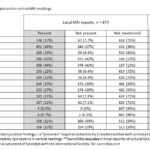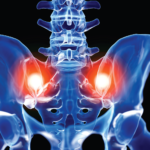Our understanding of (axSpA) has really changed, especially with regard to male-female differences. In this report, we identify important research on axSpA presented at ACR Convergence 2024, summarize the abstracts and comment on why each is important, addressing the relevance for clinicians and the potential impact on future research.








